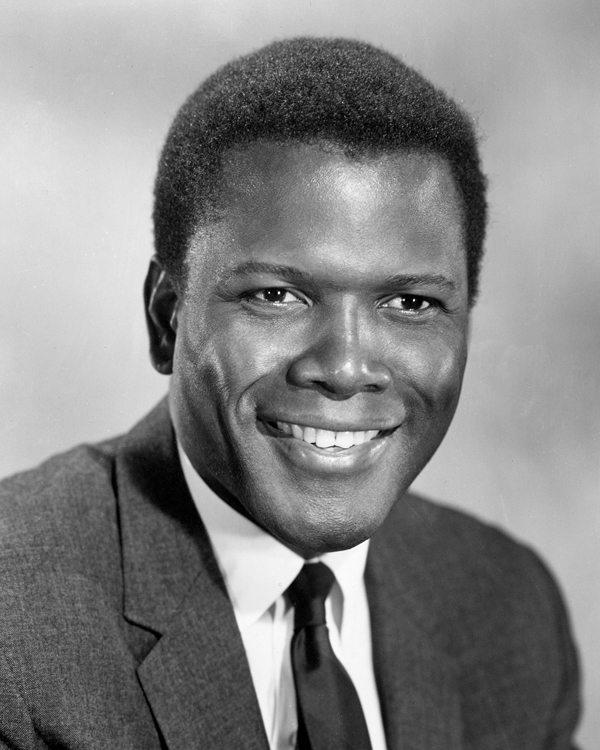
- Golden Globe Awards
- MLK Day
1982: Sidney Poitier – Elegance and Grace

A trailblazer for civil rights. A man of great dignity. And a gifted actor who was the first Black man to win a Golden Globe.
By the time Sidney Poitier was awarded the Cecil B. DeMille Award at the ceremony in 1982 — the first Black actor to ever do so — he had long since broken records as an artist, as an African American, and most of all as a human. In 1964 he won the Golden Globe for Best Actor – Drama for Lilies of the Field, for which he would go on to also win an Oscar.
Born in Miami, Poitier was the first-generation son of Afro-Bahamian parents whose ancestors hailed from Saint-Domingue, today known as Haiti. He came into this world prematurely and was not expected to live — the first time in his life when he defied the odds.
As a young man he moved to Harlem, escaping the rampant racism of the South.
In 1949, Darryl Zanuck discovered the young stage actor and put him in No Way Out, as a doctor, a role unheard of for an African American. But even before, Poitier had made a promise to himself: never to play a servant, a driver, or any other stereotypical part.
Poitier’s roles always reflected the political times he lived in but also the man of quiet dignity, he was in life, from Porgy and Bess to A Raisin in the Sun, both movies for which he received Golden Globe nominations. He marched with Dr. King and — alongside his friend Harry Belafonte — never tired of standing up for human and civil rights: “I became interested in civil rights out of a necessity to survive,” he said in 1969. “My interest started many years ago, but never as intensely as it exists today.”
Again, his life informed his art. Poitier as Mr. Tibbs slapping a Caucasian bigot in In the Heat of the Night reverberated around the world, and his playing part of an interracial couple in Guess Who’s Coming to Dinner pushed boundaries. There was no dry eye when he says to his father in the film: “You think of yourself as a colored man. I think of myself as a man.”
When Oprah Winfrey received her own DeMille Award in 2018, she dedicated it to her hero: “In 1982, Sidney received the Cecil B. DeMille Award right here at the Golden Globes, and it is not lost on me that at this moment, there are some little girls watching as I become the first Black woman to be given this same award.”
Heads of state paid tribute after Poitier’s passing earlier this year, with Barack Obama, who in 2009 gave him the highest civilian honor, the Presidential Medal of Freedom, calling him “a singular talent who epitomized dignity and grace.”
President Joe Biden may have put it best: “With unflinching grandeur and poise — his singular warmth, depth, and stature on-screen — Sidney helped open the hearts of millions, and changed the way America saw itself.”

